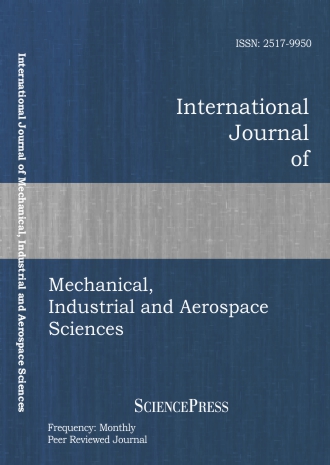
Scholarly
Volume:3, Issue: 5, 2009 Page No: 545 - 553
International Journal of Mechanical, Industrial and Aerospace Sciences
ISSN: 2517-9950
Design and Analysis of MEMS based Accelerometer for Automatic Detection of Railway Wheel Flat
This paper presents the modeling of a MEMS based accelerometer in order to detect the presence of a wheel flat in the railway vehicle. A haversine wheel flat is assigned to one wheel of a 5 DOF pitch plane vehicle model, which is coupled to a 3 layer track model. Based on the simulated acceleration response obtained from the vehicle-track model, an accelerometer is designed that meets all the requirements to detect the presence of a wheel flat. The proposed accelerometer can survive in a dynamic shocking environment with acceleration up to ±150g. The parameters of the accelerometer are calculated in order to achieve the required specifications using lumped element approximation and the results are used for initial design layout. A finite element analysis code (COMSOL) is used to perform simulations of the accelerometer under various operating conditions and to determine the optimum configuration. The simulated results are found within about 2% of the calculated values, which indicates the validity of lumped element approach. The stability of the accelerometer is also determined in the desired range of operation including the condition under shock.